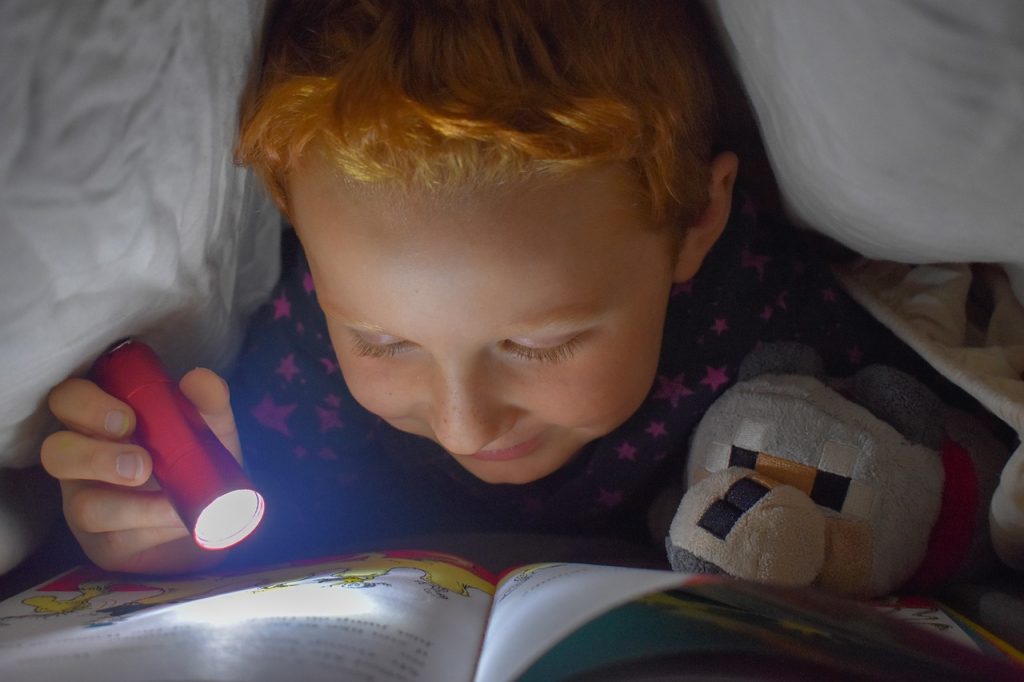Many of us love a good story, but did you know that reading – as well as writing your own stories – can positively influence your mental health?
Whether you enjoy fiction or non-fiction, research indicates that reading can help to improve our wellbeing, while creative writing can also increase happiness and thereby support our mental health.
No matter what age you are, the research shows that literacy can boost your mental health and wellbeing, with children, teenagers, students and older people all benefitting. So, if you’re struggling with your mental health, then activities such as reading, journaling or writing stories and/or poetry can all have therapeutic benefits.
Even the simple act of writing down a list of what’s worrying you can alleviate anxiousness, so putting pen to paper (or writing on your iPad or computer) can really help. It allows you a space to express thoughts, feeling and emotions and has long been used as in therapy to help people cope with difficult experiences.
Research into the ‘Emotional and physical health benefits of expressive writing’ (Cambridge University Press, 2018) found that writing about traumatic, stressful or emotional events improves physical and mental health – both in clinical and non-clinical environments.
A study from the National Literacy Trust (2018), meanwhile, showed that “children who are the most engaged with literacy are three times more likely to have higher levels of mental wellbeing than children who are the least engaged (39.4% vs 11.8%).” [1].
Another 2023 study [2] which looked at the effects of literacy on student mental health and wellbeing found that “through reading, creative writing, and bullet journaling, the students found relaxation and immersion, were able to release and process emotions, and reflect on their mental health.” By engaging in these activities, the study also showed that the students built up more positive self-esteem and had increased opportunities for benefitting from supportive relationships.

According to research from the University of Plymouth and Nottingham Trent University (2023) reading and writing poetry can also help people cope with loneliness, isolation and depression [3]. Indeed, during the pandemic, they studied a website (now archived at poetryandcovid.com) where people shared their own poetry and read other people’s.
The researchers discovered that, of the 400 people surveyed from the website, more than half said that reading and writing poetry had helped them cope better with feeling lonely or isolated. Meanwhile, 50% said that poetry had helped them manage their feelings of anxiety and depression.
At Action Mental Health, we offer a wide range of programme and services to help people manage their mental health and wellbeing, some of which include creative writing workshops. Indeed, our Skills Coach Trainer, David Allen, has facilitated a variety of creative writing-related workshops for clients through our Antrim and Larne outreach programme, focusing on everything from narrative fiction and short story writing to poetry and children’s picture book writing.
“We’ve covered areas such as plot and structure, characters, setting, point-of-view, narration, dialogue, themes and symbolism,” he said.
“With the poetry, we looked at different forms of poetry, such as blank verse, free verse and sonnets, along with figurative language, rhyme, rhythm and meter. I think our clients also enjoyed the children’s picture book course, as we were able to incorporate many of the above elements, but adapt them for young children.”
He added that Michael Di Maggio, a client from the Larne outreach programme was so inspired that he actually went on to publish his own children’s book, Luna’s Mission to the Moon.
With the Five Ways to Wellbeing focused on connecting with people, getting active, taking notice, learning and giving, creativity feeds into each of these in various ways, with creative writing just one example of something you can do.
Joining a book club or reading group is another way to connect with people and get creative, while workshops like those offered at Action Mental Health and other organisations are also great ways to enhancing wellbeing.
Having participated in various creative workshops recently, our clients from Antrim will subsequently be exhibiting some of their work at Clotworthy House at Antrim Castle Gardens in October.
One piece of work that will feature is a poem entitled The Fear, by Jill O’Neill, which she was motivated to write after attending one of Dave Allen’s creative writing courses and describes living with poor mental health.
John Davis, service manager at Action Mental Health’s Antrim location, said: “Our client art exhibition will be open to the public until the end of October. The exhibition will consist of a selection of work completed by our Antrim clients, showcasing their work using different mediums, such as fine art, abstract art, pencil and photography.
“This is a great opportunity for clients to see their work displayed in public areas and to be purchased, which really does boost their confidence and self-esteem.”
The launch event will take place at Clotworthy House at Antrim Castle Gardens on Monday, October 7 at 10.30am. It will be officially opened by the Mayor and the exhibition will be available to view until the end of the month.
References
[1] Clarke, C., Teravainen-Goff, A. (2018) Mental wellbeing, reading and writing: How children and young people’s mental wellbeing is related to their reading and writing experiences. National Literacy Trust, London.
[2] Peach, E. (2023) Creative Mental Health Literacy Practices: A Qualitative Study Exploring How Students Use Literacy to Promote Wellbeing and Manage Mental Health Conditions While at University. Int J Environ Res Public Health; 20(15): 6475.DOI: 10.3390/ijerph20156475
[3] Caleshu, A., Waterman, R. & Kemp, S. (2023). Poetry and COVID-19: the benefit of poetry and the poetryandcovidarchive.com website to mental health and wellbeing. Journal of Poetry Therapy, 37 (3), 198–218. https://doi.org/10.1080/08893675.2023.2250921